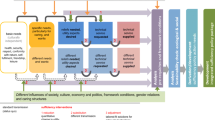Abstract
Rising popularity of photovoltaic panels and other equipment allowing the electricity production in households evoke the new challenges – i.e. high energy exchange due to high production or usage peaks. One of the solution to such problems is the Energy Management System (EMS) which is able to monitor and report real-time power consumption. EMS allows for launching a whole range of new features – i.e. flexible tariffs or automatic scheduling of home appliances starting time. In this paper we present the results coming from social research conducted within project “e-balance - balancing energy production and consumption in energy efficient smart neighborhoods” realized within European 7FP. We outline four areas of potential social barriers for EMS adoption: engagement, unwillingness to leave appliances unattended, division of roles in the household and privacy concerns. Concluding, our studies indicate that the inclusion of the human perspective is necessary for the effective implementation of Energy Management Systems.
Access this chapter
Tax calculation will be finalised at checkout
Purchases are for personal use only
Similar content being viewed by others
References
Cavoukian, A., Polonetsky, J., Wolf, C.: Smart privacy for the smart grid: embedding privacy into the design of electricity conservation. Identity Inf. Soc. 3(2), 275–294 (2010)
Vaughan, A.: Solar power growth leaps by 50% worldwide thanks to US and China (2017). https://www.theguardian.com/environment/2017/mar/07/solar-power-growth-worldwide-us-china-uk-europe
Kobus, C.: A switch by design. User-centered design of smart energy technologies to change habits of using energy at home. Dissertation Technische Universiteit Delft, Delft (2016)
Quinn, E.: Smart metering & privacy: existing law and competing policies. A report for the Colorado Public Utilities Commission. Colorado Public Utilities Commission, Denver (2009)
Greveler, U., Justus, B., Loehr, D.: Forensic content detection through power consumption. In: Proceedings of IEEE International Conference on Communications 2012, pp. 6759–6763, IEEE Press, Ottawa (2012)
Flexibility from residential power consumption: a new market filled with opportunities (2016). https://www.usef.energy/app/uploads/2016/12/EnergieKoplopersEngels_FinalReport_2016_vs4-1.pdf
Akshay Uttama Nambi, S.N., Venkatesha Prasad, R.: Toward the development of a techno-social smart grid. IEEE Commun. Mag. 54(11), 202–209 (2016)
Shadbolt, N.R., Smith, D.A., Simperl, E., Van Kleek, M., Yang, Y., Hall, W.: Towards a classification framework for social machines. In: WWW 2013 Companion Proceedings of the 22nd International Conference on World Wide Web, pp. 905–912 (2013)
Author information
Authors and Affiliations
Corresponding author
Editor information
Editors and Affiliations
Rights and permissions
Copyright information
© 2018 Springer International Publishing AG
About this paper
Cite this paper
Kowalski, J., Biele, C., Mlodozeniec, M., Geers, M. (2018). Significance of Social Factors for Effective Implementation of Smart Energy Management Systems in End-User Households. In: Karwowski, W., Ahram, T. (eds) Intelligent Human Systems Integration. IHSI 2018. Advances in Intelligent Systems and Computing, vol 722. Springer, Cham. https://doi.org/10.1007/978-3-319-73888-8_20
Download citation
DOI: https://doi.org/10.1007/978-3-319-73888-8_20
Published:
Publisher Name: Springer, Cham
Print ISBN: 978-3-319-73887-1
Online ISBN: 978-3-319-73888-8
eBook Packages: EngineeringEngineering (R0)




